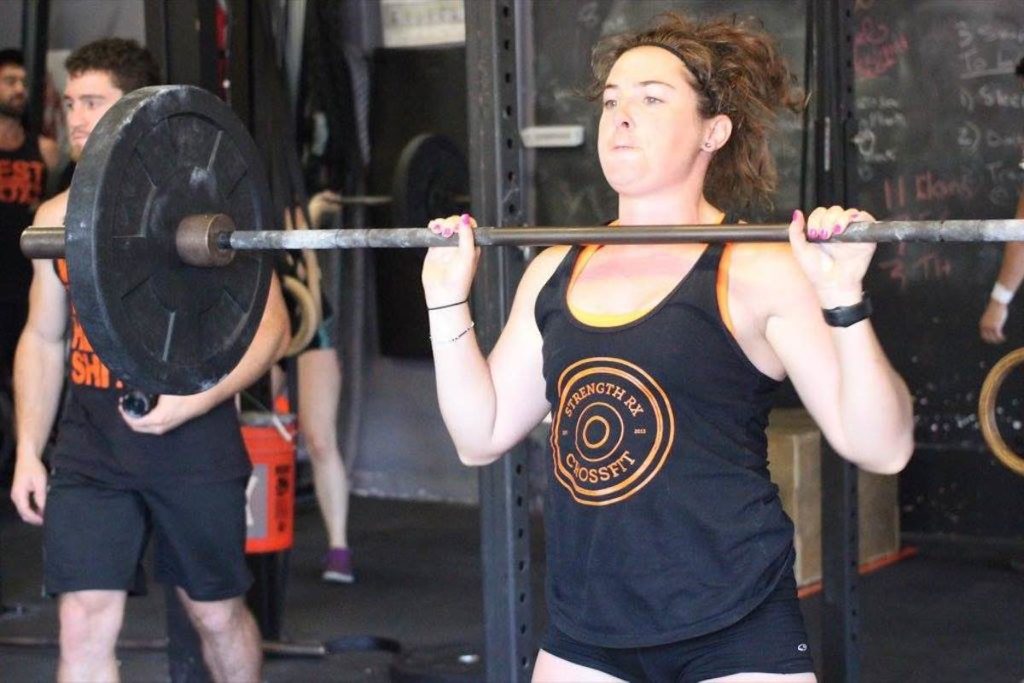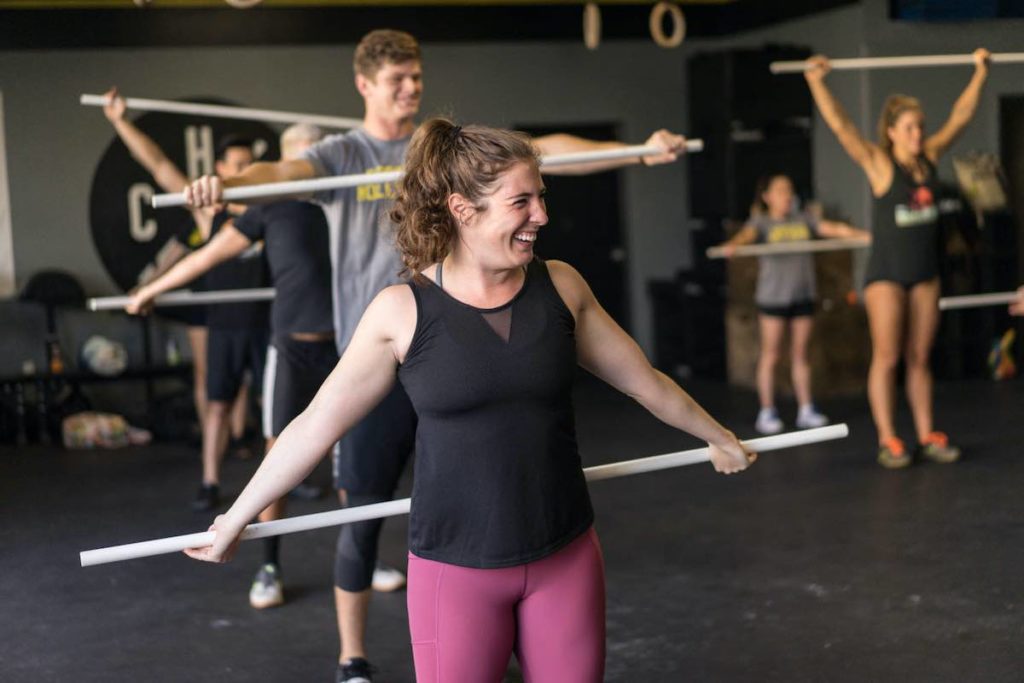Imagine you’re in the middle of a weightlifting session and everything is going wrong. Except, it’s not just one session, it’s a constant occurrence. You beat yourself before touching the barbell and you end up being frustrated and overwhelmed.
This was my experience, and enough was enough. On the road to becoming a better weightlifter, I spent the time working on my technique to increase speed and efficiency. At this point, the next logical step for me was to hire a sports psychologist to strengthen my mental game.
How It All Started
I often record my lifts to see how I can improve. This became even more important when my weightlifting coach was remote. I remember one particular session perfectly, but not because of how easy the bar was going up — quite the opposite. It was a 1RM power snatch day, and I had the bar loaded up to 53kg (116.8 pounds), a weight I have hit consistently in the past.
I literally pulled the bar to my forehead, but somehow still ended up missing the lift. Something about dropping under the bar has plagued me in both the snatch and the clean & jerk for as long as I have been lifting.

I had to get past this deficiency, and it was after this session that I knew I couldn’t do it alone.
Mental health was something I had been battling for a while outside of weightlifting and intuitively I knew this had to get addressed in my sport, too. When I got home, the first thing that I did was look up sports psychologists and I happened to stumble upon Coach Bill Cole. Upon further research, I found that he had coached Olympic athletes (including weightlifters), numerous professional sports teams and world champions.
Improving My Mental Game
That day, I filled out the online assessment and after my initial meeting with Coach Bill, it was clear to me that he was the coach I was looking for. I appreciated the fact that he was kind, attentive and gave me a variety of tools to guide me to my destination. He left it up to me to choose which one worked the best. Initially, we started with three sessions and the themes that came up throughout them were to be kind, to be curious and to be present.
Being Kind
During our first coaching session together, Coach Bill said something that triggered me: “Be kind to yourself.”
There have been many instances where I have found my self-talk to be extremely harsh. We spent almost an hour going over ways that I could practice using more compassion in my internal dialogues. He gave me the assignment of a self-talk journal to write down what’s coming to mind in order to look for trends.
One polarizing experience for this exercise was when I played back a video of me front squatting. I was so excited to hit my 90 percent because I hadn’t done a heavy front squat in months. My first thought when watching the video, however, was not of how strong I looked — it was how “fat” I thought I looked.
https://www.instagram.com/p/CDKQWNSjV9H/
When discussing this with Coach Bill, I was filled with rage and sadness because I recognized how mean it was, but it needed to be brought to the surface. I know this won’t be the last time that I will have a negative or self deprecating thought, but it taught me that I’m in control of how much attention I give them.
Being Curious
As most athletes are, I am goal oriented and place a lot of value on those goals. These goals are reflected in my programming and if, for example, I am programmed to hit a certain percentage, the only option I give myself is to hit them. If I don’t that’s when the negative thoughts start rolling in. What I don’t ever consider is everything else: my sleep, my nutrition, my stress, how I am feeling, and all of the other factors that can make a huge impact on performance.
This especially comes into play when I am at the 90/95 percent range. I panic, every time, regardless of my consistency with these numbers. I defeat myself just by reading the programming for the day.
Coach Bill challenged me to approach the session with curiosity, especially when I see high percentages. Instead of telling myself, “I will hit 95%,” I reframe the thought to, “I wonder if I can hit 95% today?” It’s a simple mindset shift, but so far, the shift has led to much more enjoyable and successful lifting sessions.
Being Present
This repositioning to leading with curiosity has given me the freedom of being more present while on the platform. Instead of having a head filled with fear and doubt, we worked on centering techniques to quiet my mind. He gave me tools like “Look and Label” which is as simple as looking around the gym and labeling the things I see in my head to interrupt the negative, self-deprecating thoughts.
For me, another big part of being present was paying attention to my breathing. I discovered that I tighten my jaw and hold my breath while setting up for my lift, and that paired with racing thoughts makes for a messy approach.
During my next weightlifting session, I practiced loosening my jaw and centering myself before the barbell left the floor. I found myself lifting with more intention and confidence by slowing down and setting myself up for success.
We all have self doubts and whether or not it pertains to our sport or not, we bring it with us. It doesn’t make us less than or inferior, it makes us human. Just as we diligently train our body for sport to be stronger or faster, we owe it to ourselves to also train our minds to work with us to make us the best athletes we can be.
Moving Forward
In three sessions, Coach Bill gave me quite a few invaluable tools to incorporate into my training. What I am focused on now is implementing some of them, figuring out which ones work best for me, and creating a routine in the gym for myself. So far there has been much more focus and much less frustration, but most importantly, a deep commitment to improving myself as a complete athlete.
